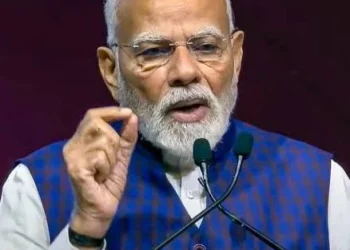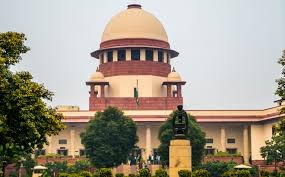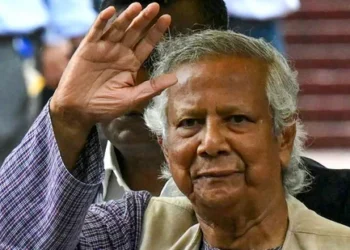The Bitcoin scam in Maharashtra was a complex and widespread operation that involved the manipulation of Bitcoin transactions by a network of individuals, including cryptocurrency traders, businessmen, and even law enforcement officers. This fraud was uncovered when authorities discovered over 1,000 Bitcoin transactions carried out under suspicious and illegal circumstances.
The scam revolved around the creation of fake Bitcoin transactions, which were presented to investors as legitimate. The accused parties claimed that these transactions were part of profitable cryptocurrency investments, luring people to invest substantial amounts. However, it was soon revealed that the true objective of these operators was to manipulate Bitcoin prices, defraud investors, and launder money through a series of illegal exchanges and transactions.
The scandal took a more alarming turn when law enforcement officials, including Ravindra Patil, were found to be involved in aiding the fraudsters. These officials allegedly used their positions to protect the criminals and obstruct the investigation, raising concerns about corruption within the police force.
Key Players in the
- Ravindra Patil, a former Mumbai police officer, emerged as one of the central figures in the Bitcoin fraud. His involvement raised serious questions about corruption in the police department, as he was allegedly tasked with shielding the fraudsters from legal action. Patil was accused of using his position to manipulate investigations and protect the culprits, facilitating their illegal activities without interference.
- Amit Bharadwaj and Sandeep Patil, prominent businessmen and cryptocurrency traders, were identified as the masterminds of the scam. They attracted investors by offering promises of lucrative returns from Bitcoin investments but were actually running a Ponzi scheme. Older investors were paid with money from new investors, creating an illusion of profit while concealing the massive losses. Their role in manipulating Bitcoin’s market value for personal gain caused significant financial damage to many.
- Shubham Soni, another key figure, allegedly played a crucial role in setting up fake cryptocurrency trading platforms. These platforms were used to conduct fraudulent Bitcoin exchanges, and a portion of the proceeds was funneled into money laundering operations. His involvement in facilitating the exchange of illicit funds made him a critical part of the fraudulent network.
The Maharashtra Cyber Police launched an extensive investigation into the Bitcoin scam. The investigation proved challenging due to the digital nature of cryptocurrency and the lack of regulations governing such transactions in India at the time. Despite these hurdles, investigators used digital forensics to trace fraudulent transactions and uncover a network of fake Bitcoin exchanges.
Several key arrests were made during the investigation:
- The arrest of Ravindra Patil was a significant breakthrough. His arrest highlighted the degree of corruption within the police force, as he had allegedly used his position to shield the fraudsters from prosecution. His involvement in the manipulation of investigations and his role in aiding the scam were critical to the fraud’s continued success.
- Amit Bharadwaj and Sandeep Patil were arrested after the police traced them to fraudulent Bitcoin trading operations. Bharadwaj, a well-known figure in the cryptocurrency industry, had previously promoted digital currencies, which made him a trusted figure among investors. He, along with Sandeep Patil, had been running the Ponzi scheme that led to massive financial losses. Their arrest exposed the scale of the fraud.
- Shubham Soni was arrested after his role in managing fake cryptocurrency trading platforms was revealed. He coordinated with other fraudsters to execute money laundering schemes, using shell companies and offshore accounts to conceal the illicit funds.
- Other Arrests
In addition to these primary suspects, several accomplices and middlemen were arrested for their involvement in facilitating illegal exchanges and managing the proceeds of the scam. Some of these individuals were involved in laundering money through fake businesses and offshore accounts, complicating the investigation further.
The Bitcoin fraud in Maharashtra exposed significant gaps in the regulatory framework governing cryptocurrencies in India. The lack of oversight allowed the fraudsters to exploit the system without facing immediate consequences. In response to the scam, the Indian government began considering stricter regulations for cryptocurrency exchanges. In 2021, this led to the drafting of the Cryptocurrency and Regulation of Official Digital Currency Bill, which aimed to regulate and even ban certain cryptocurrencies to prevent similar fraudulent activities in the future.
The massive scale of the Bitcoin scam significantly impacted public trust in the cryptocurrency market. Investors who had been promised high returns were left devastated as the fraudsters manipulated the market for their personal gain. The incident raised alarms about the security and legitimacy of cryptocurrency investments in India, with many people becoming wary of digital currency platforms that lacked proper regulatory oversight.
The involvement of police officers in the scam also led to political repercussions. The arrests of law enforcement personnel raised concerns about corruption within the system and the potential for abuse of power. The case drew attention to the need for greater accountability within the police force and emphasized the importance of independent investigations in cases involving public officials. The Bitcoin fraud served as a reminder of the vulnerability of public institutions to corruption.













